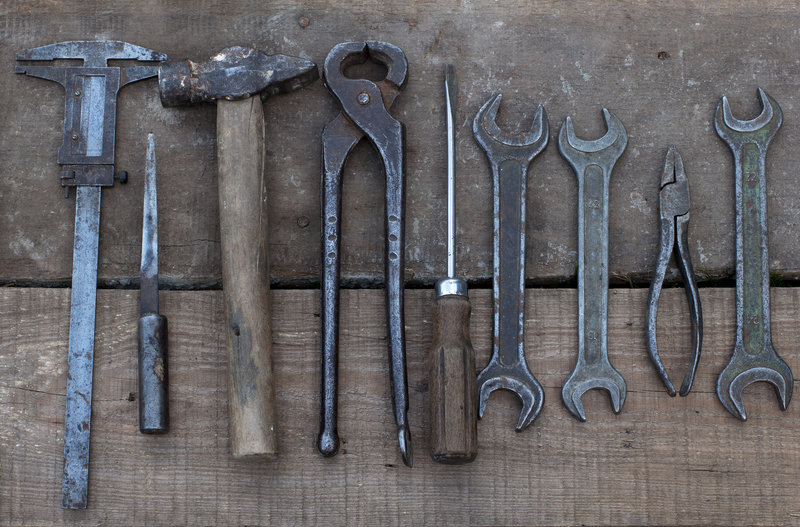Avoid Extra Fees When Disposing of Bulky Items With These Tricks
Disposing of large, unwanted items can feel overwhelming, especially with the risk of hidden or unexpected fees. Most cities and waste disposal services charge extra for bulky trash, taking advantage of the confusion many people face when it's time to get rid of things like old furniture, mattresses, or appliances. Fortunately, with some strategic planning and insider knowledge, you can avoid extra fees when disposing of bulky items. This comprehensive guide covers the best tips, methods, and local options to save money, protect the environment, and simplify your large item disposal experience.
Understanding Bulky Item Disposal and Hidden Costs
Disposing of oversized items--such as couches, large electronics, beds, or yard debris--often involves more than just dragging things to the curb. Municipalities, private hauling services, and landfill operators all have their own schedules, rules, and fee structures for bulky waste. If you're not aware of these upfront, you might end up paying avoidable costs.
- Bulky waste pickup fees: Many waste management companies charge per item or per load.
- Extra trip charges: If you schedule a special pickup outside regular collection days, you may pay additional service fees.
- Environmental surcharges: Electronics and hazardous materials often have extra disposal charges due to safe processing needs.
- Improper disposal fines: Leaving items on the curb without proper scheduling can result in fines for illegal dumping.
Knowing how and when to dispose of large waste items--and understanding fee structures--can help you sidestep unnecessary charges. Let's explore the best tricks to save money.

Top Strategies to Avoid Extra Fees When Getting Rid of Large Items
1. Research Your Local Bulk Pickup Rules
Most cities offer bulk waste collection, but the rules and fee schedules vary. Look up your city or county's sanitation department online and search for "bulky item pickup." Review:
- Included items: Some services only cover certain items, like furniture or white goods (appliances).
- Allowed quantities: Many programs allow a set number of items per collection (e.g., up to 3 items per quarter).
- Scheduling requirements: Advance booking might be required; missed windows can mean extra charges.
- Pick-up days: Special events or monthly pickup schedules may waive fees if you time it right.
Tip: Bookmark your city's solid waste website and check for updates about free bulk pickups, amnesty days, or seasonal collection events.
2. Take Advantage of Free Disposal Events
Many communities host annual "clean-up days" or "dump amnesty" events. During these periods, residents can dispose of bulky trash for free or pay significantly reduced rates at designated drop-off locations. Commonly accepted items include:
- Old furniture and mattresses
- Broken appliances (check for electronics restrictions)
- Large yard waste bundles or tree limbs
- Construction debris (in small household quantities)
To save money: Plan disposal around these dates. Gather your bulky items in advance to make the most of free drop-off opportunities.
3. Use Manufacturer or Retailer Take-Back Programs
Retailers and manufacturers often offer removal services for old items when you purchase a replacement. Examples include:
- Mattress companies: Many mattress retailers will remove your old mattress for free or a small fee as they deliver the new one.
- Appliance stores: Buy a new refrigerator, washer, or stove and select the haul-away option at checkout.
- Electronics retailers: Big-box stores such as Best Buy offer electronic recycling, and sometimes accept TVs or large electronics at no extra charge with new purchases.
This "one in, one out" approach prevents storage headaches and often eliminates separate disposal charges.
4. Sell or Give Away Usable Bulky Items
Not all large items have to end up in the landfill. You can avoid bulky item disposal fees--and help your community--by passing unwanted yet usable items on. Try:
- Online marketplaces: List furniture, exercise equipment, or electronics on sites like Craigslist, Facebook Marketplace, OfferUp, or Nextdoor. Even items marked "free" will attract local takers.
- Non-profit donation centers: Organizations such as Habitat for Humanity ReStore, Goodwill, or The Salvation Army often accept large items in working condition. Some provide free pickup for furniture.
- "Buy Nothing" groups: These hyper-local Facebook or community groups allow you to give items away for free, helping neighbors and keeping trash out of landfills.
Remember: Condition matters. Donation centers may refuse excessively worn, dirty, or broken items--so call ahead to confirm acceptance criteria.
5. Rent a Truck and DIY Drop-Off
If municipal bulky waste pickups or donation services aren't available, it may be cheaper to haul items yourself. Many cities operate public landfills, transfer stations, or "convenience centers" that accept resident drop-off at a discounted rate compared to private haulers.
- Calculate your load: Renting a small truck or trailer can often move multiple pieces in one trip--reducing time, labor, and disposal costs.
- Split costs: Coordinate with friends, neighbors, or HOA members to share vehicle rental and landfill fees.
- Sort carefully: Separate recyclable materials (metal, electronics, yard waste) to qualify for reduced rates or free drop-off zones.
Many transfer stations require proof of residency, so bring a utility bill or ID.
6. Break Down Items to Avoid "Oversize" Fees
Landfills and collection services often bill by item size or volume. Large couches, bed frames, or shelving units can quickly put you into higher fee brackets. To reduce or eliminate extra fees:
- Disassemble furniture: Remove legs, collapse bed frames, or break large shelves into flat components for easier, cheaper disposal.
- Bag and bundle: Mattress bags, twine, or heavy-duty garbage bags can contain small pieces, keeping your load compact.
- Follow size limits: Check your city's requirements. Some services accept items only below a specific length, width, or weight--breaking down larger pieces prevents rejections or surcharges.
Check tool rental shops for saws, drills, or other tools needed for safe and efficient disassembly.
7. Know What's Not Allowed and Avoid Fines
Some items are considered hazardous or require special processing (such as refrigerators containing Freon, old TVs, paint, or chemicals). Placing these items in regular trash or unscheduled curbside pickup can result in fines. To avoid extra disposal fees for prohibited items:
- Contact local hazardous waste programs for electronics, chemicals, or refrigerant appliances. These programs often have specialized collection days with reduced or waived fees.
- Ask retailers if they'll remove appliances as a service with your new purchase.
- Don't risk illegal dumping. Apart from city fines, improper disposal can seriously harm the environment and attract pests.
8. Compare Private Junk Haulers Carefully
In areas without robust municipal bulky waste programs, private junk removal services offer convenience--but prices vary widely. To avoid excessive costs:
- Get multiple quotes in writing before committing.
- Ask about included labor, loading, and dumping fees.
- Review customer ratings for reliability and no-hidden-fee guarantees.
- Consider loading the items yourself ("curbside pickup") for a reduced rate.
Booking online may unlock coupons or discounts. Read the terms carefully to ensure there are no last-minute add-ons.
Frequently Asked Questions About Avoiding Extra Bulky Waste Fees
Can I put my old couch or mattress on the curb?
It depends on local rules. Many cities require advance scheduling, item limits, or special tags to legally dispose of large furniture. Ignoring these rules can lead to fines or the city refusing to remove your item.
What do I do with old appliances?
Manufacturers and retailers often offer haul-away services with the purchase of new appliances. For standalone disposal, check for appliance recycling events or hazardous waste days to avoid surcharges.
Are there free options for getting rid of large items?
Yes! Service clubs, churches, or "clean-up days" by local governments offer limited free disposal alternatives. Local online groups (such as Buy Nothing or Freecycle) are excellent for giving away bulky items at no cost.
Pro Tips: Things to NEVER Do With Bulky Waste
- Don't dump illegally: Leaving large items at empty lots or by dumpsters is illegal and carries stiff penalties.
- Don't mix hazardous waste: Paints, electronics, and chemicals must be separated out and handled by specialty providers.
- Don't ignore size rules: Over-sized items may be refused, resulting in wasted time and possible re-delivery charges.
- Don't pay without researching: Public bulk pickup, donation, and drop-off services are almost always cheaper than private junk hauling.

Environmental Benefits of Proper Bulky Item Disposal
While saving on disposal fees helps your wallet, responsible bulky item management also protects our planet. Mattress and furniture recycling keeps thousands of pounds of waste from landfills annually. Donating gently used items gives them a second life, helping save resources and reducing carbon footprints. Electronic recycling keeps toxic metals out of water and soil.
By using the tricks in this guide, you can:
- Maximize value from your unwanted household goods
- Minimize landfill impact and environmental harm
- Save both money and hassle by avoiding extra or hidden fees
Conclusion: Disposing of Bulky Items the Smart and Budget-Friendly Way
Big items don't have to mean big headaches--or big expenses. From leveraging free city pickups and donation programs to timing your disposal to local events and breaking items down for cheaper rates, avoiding extra fees when disposing of bulky items is all about being informed and proactive. Use these proven tricks to simplify your next cleanout, save money, and support a cleaner environment.
For more local tips and updates, sign up for your city's solid waste newsletter or check their website regularly. Responsible disposal saves money--and helps us all live in cleaner, greener communities.
```